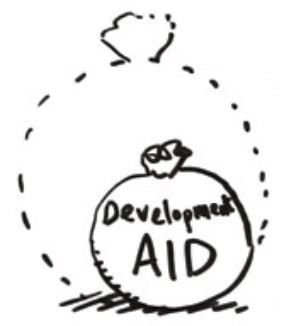Budget 2020 does little to improve ODA situation

Budget 2020 allocated €837m to Ireland’s Official Development Assistance (ODA) programme; an increase of approximately €20m on the amount pledged in Budget 2019.
Approximately €550m was allocated through the Department of Foreign Affairs and Trade, with the rest allocated through other government departments, including the Department of Finance and the Department of Agriculture, Food and the Marine.
While welcoming the small increase, Social Justice Ireland is disappointed that this will not result in any significant improvement in Ireland’s ODA in terms of national income. ODA committed in Budget 2019 looks likely to amount to approximately 0.40 per cent of new modified GNI (also known as GNI*), which is perhaps the best measure of Ireland’s national income.
In our Budget Choices 2020 briefing, Social Justice Ireland urged Government to make a commitment to increase the aid budget over the six years to 2025 in order to reach 0.70 per cent of national income. We estimate that the increase in ODA in Budget 2020 will bring the total ODA allocation to 0.41 per cent of projected GNI* in 2020.
Social Justice Ireland welcomed the large increase in ODA in last year’s budget as being a firm step in the right direction with regard to meeting our UN-agreed obligations. (Developed countries like Ireland have pledged to donate 0.7 per cent of their national income as ODA each year). It is disappointing that this has not been built upon to any significant extent.
One positive feature of the Minister’s speech was the announcement that Ireland will double its annual contribution to the Green Climate Fund, which provides much needed financial support to reduce GHG emissions in developing countries.
Ireland is regularly commended by the OECD Development Assistance Committee Peer Review for the effectiveness of our aid programme. We can be justifiably proud of our record of providing high quality, untied, grant-based aid.
However, many other countries have taken a leadership role in moving towards the 0.7 per cent target, and Ireland’s record in this regard has historically been very poor. Our pre-recession peak (reached in 2008) was 0.59 per cent.
Ireland still lacks a strategy for reaching the 0.7 per cent target and Social Justice Ireland calls on government to develop such a roadmap with a view to reaching this target.
At uncertain economic times, it is important that policymakers remember to protect the vulnerable. ODA plays a major role in such an approach. This is particularly so given that the recipients of Irish ODA tend to live in some of the countries who experience the worst effects of climate change—an area is which Ireland is a prime offender.